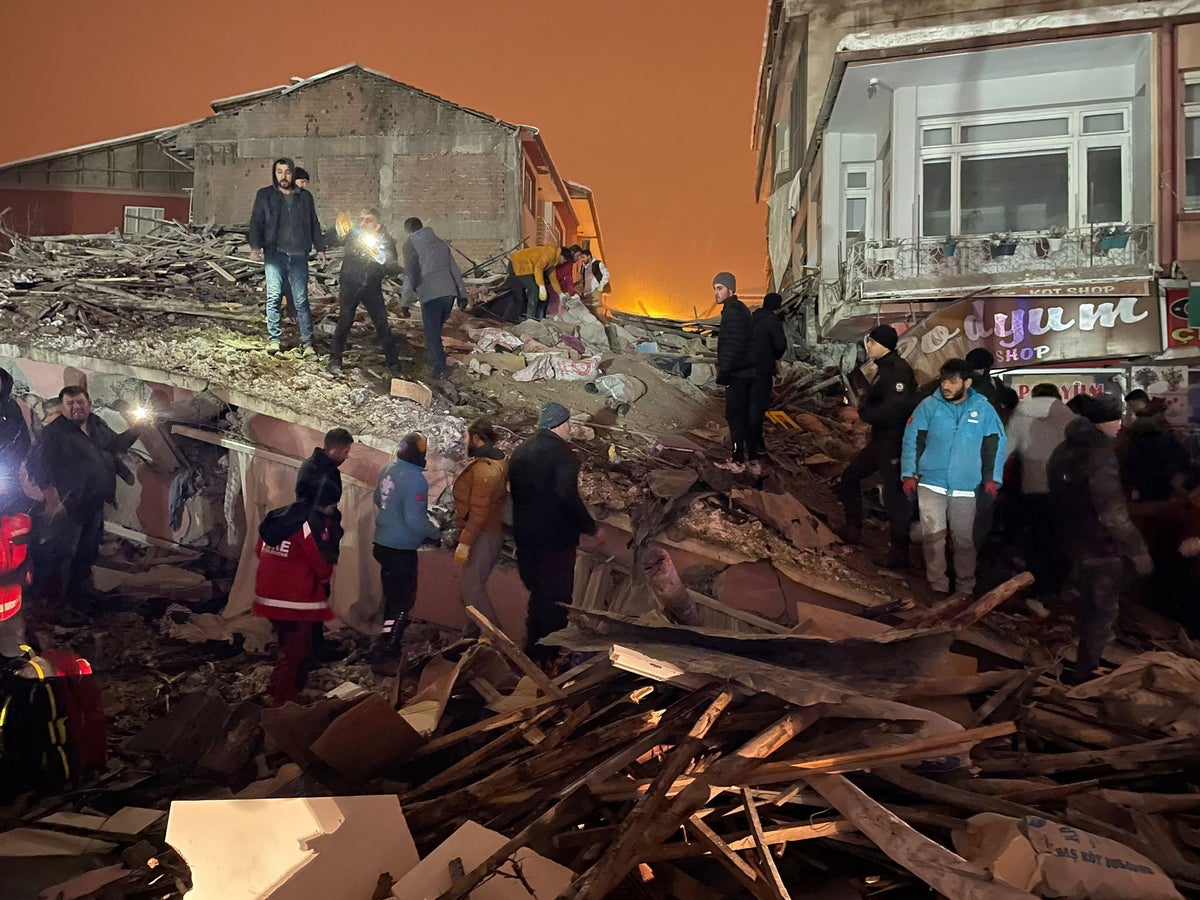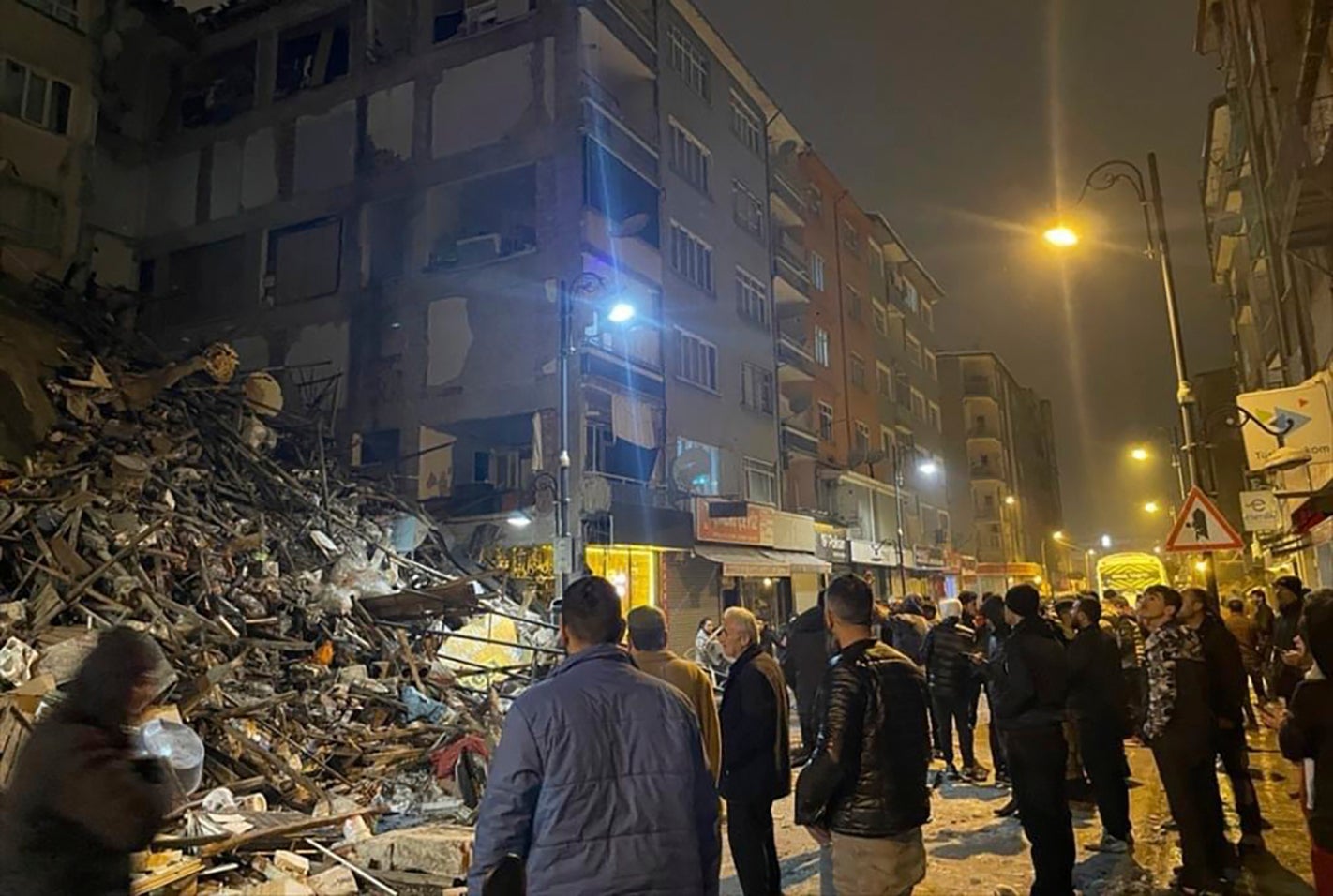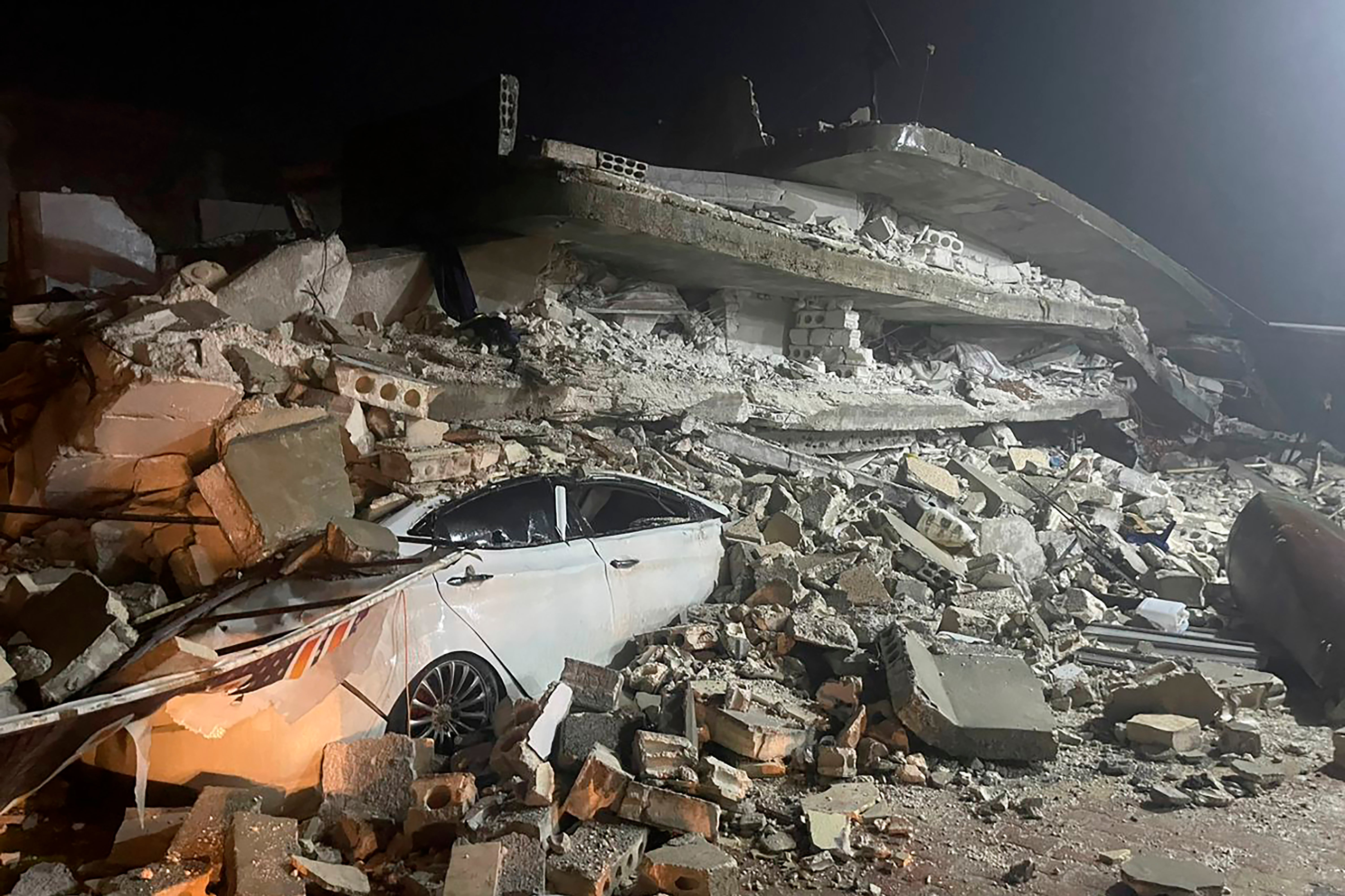
More than 1,300 people have been reported dead and dozens trapped under debris after a powerful 7.8 magnitude earthquake struck southeast Turkey and Syria during the early hours of Monday.
The quake was centred north of the city of Gaziantep in an area about 60 miles from the Syrian border. The powerful jolt toppled hundreds of buildings, sending residents into the snowy streets for safety.
Turkish president Recep Tayyip Erdogan said the death toll in the country has risen to 912, while over 5,000 people have sustained injuries. At least 2,818 buildings have collapsed in 10 provinces of Turkey, authorities said.
Mr Erdogan in a statement on Monday afternoon called the earthquake the country’s largest disaster since 1939.
The quake prompted authorities in Italy to warn of potential tsunami risk and asked civilians to move to higher areas.
Turkey’s disaster and emergency management agency said the quake killed at least 284 people in seven provinces, including Malatya, Sanliurfa, Diyarbakir and Osmaniye.
Earlier, the president said that "search and rescue teams were immediately dispatched" to the areas hit by the quake. "We hope that we will get through this disaster together as soon as possible and with the least damage," he said in a tweet.
A total of 42 aftershocks have been felt in the two hours since the quake first struck at 4.17am local time, Turkey’s ministry of interior disaster and emergency management said.
“As of 6:30am, a total of 42 aftershocks, the largest of which was 6.6, were experienced,” the ministry said in a tweet.
Interior minister Suleyman Soylu said the government's priority was to bring out people who are trapped under the rubble and rush them to hospitals. He has urged people to not enter the damaged buildings and stop using mobile phones.
“All our teams are on the alert. We have raised a level four-alarm, which includes international aid.”

"I have never felt anything like it in the 40 years I've lived," said Erdem, a resident of the Turkish city of Gaziantep, near the quake's epicentre. "We were shaken at least three times very strongly, like a baby in a crib," he told Reuters.
A gas pipeline near the city of Kahramanmaras in the southern part of the country was reported to have exploded. However, Turkish energy company Botas said no damage has been detected to oil pipelines. Gas flow was halted in some areas as a precautionary measure, it said.
Across the border, Syrian authorities said at least 326 people have died while more than 1,000 suffered injuries in the government-controlled areas. In the rebel-held regions, the toll was at 47.

Syrian state media reported that the quake levelled some buildings in the northern city of Aleppo and the central city of Hama, while people were forced to rush to the streets in Damascus.
The civil defence urged people to evacuate buildings to gather in open areas. Emergency rooms were full of injured, said Amjad Rass, president of the Syrian American Medical Society.
The quake jolted residents in Lebanon from beds, shaking buildings for about 40 seconds. Many residents of Beirut left their homes and took to the streets or drove in their cars away from buildings.

France, Russia and India have offered to send aid to the two devastated nations.
Turkey sits on top of major fault lines and is frequently hit by quakes. In 1999, a powerful earthquake killed some 18,000 people in northwest Turkey.







